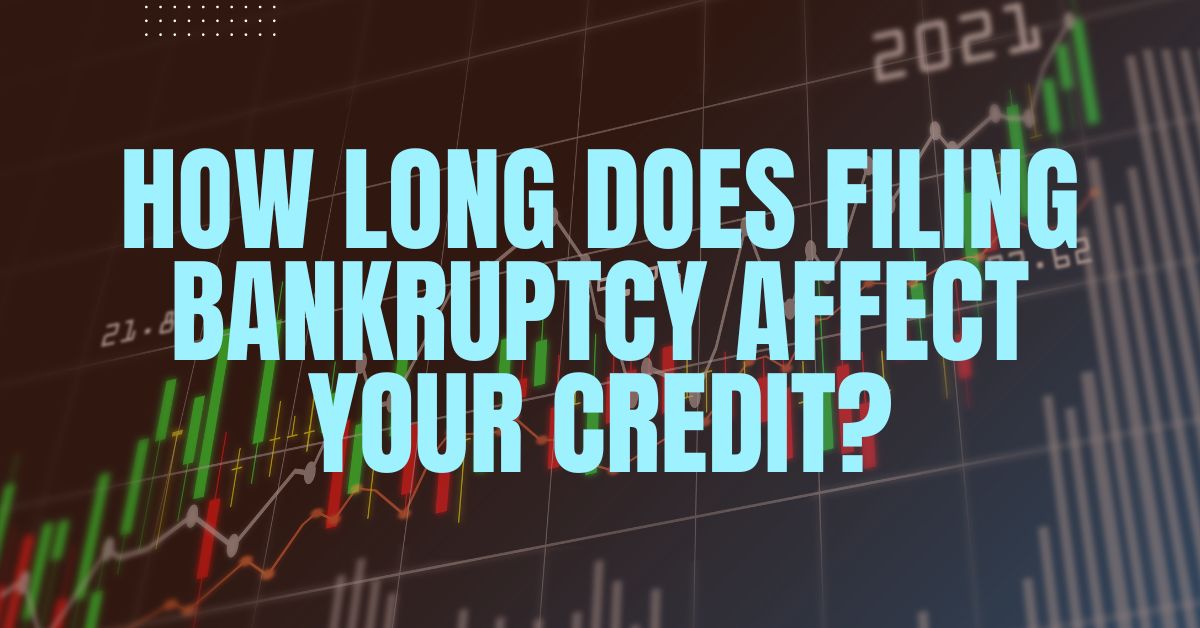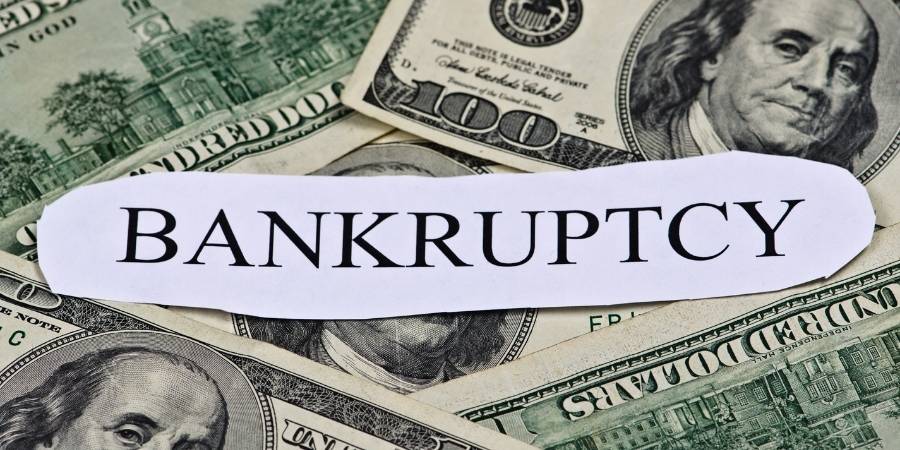How Long Does Filing Bankruptcy Affect Your Credit?

If you can’t find a way out of your mounting debts, bankruptcy may be your last alternative. Although bankruptcy is a major credit-killer, it can be your best option if you’re in a tight financial bind. You may find it harder to obtain loans in the future if you have a low credit score after declaring bankruptcy. If you’re considering filing for bankruptcy, here are a few things to consider first.
There is a 10-year window during which bankruptcies may appear on credit records; the two most common types of bankruptcies are Chapter 7 and Chapter 13. Declaring bankruptcy has a devastating effect on credit scores until the information is removed from consumer records. That makes it tough to secure a mortgage, car loan, or individual loan. However, there is some good news: you may take action to speed up the process of credit rebuilding. Here’s a breakdown of how long different types of bankruptcy will appear on your credit reports.

The Bankruptcy Process: What to Expect
Filing for bankruptcy is one way for people to get a reprieve from their obligations. If you’re struggling to make ends meet, declaring bankruptcy may be an option to help you get out from under your debts. It’s best to wait until all other alternatives have been thoroughly explored before filing for bankruptcy.
When filing for bankruptcy, it’s a good idea to have legal representation to guide you through the process. Filing for bankruptcy under Chapter thirteen or Chapter seven depends on your individual financial circumstances.
How Does Chapter 13 Bankruptcy Compare to Chapter 7 Regarding My Credit Score?
Again, FICO, the most widely used credit scoring company in the US, argues that filing for Chapter 7 or Chapter 13 bankruptcy has no impact on credit scores. However, a potential lender reviewing your credit history may view one kind of bankruptcy more favorably than another. Chapter 13 bankruptcy, in which debts are repaid over three to five years, is often seen as a more reliable option than Chapter 7 bankruptcy and is therefore regarded as a lesser credit risk by some creditors.
When a Person Declares Bankruptcy, What Happens to Their Credit Score?
A bankruptcy filing is a public admission that you cannot or will not pay discharged debts in full as agreed upon, which may negatively affect your credit.
It’s thus not surprising that filing for bankruptcy might severely damage your credit. After ten years, your credit reports and scores will still be negatively affected by a Chapter 7 bankruptcy. In contrast, they will only be negatively affected by a Chapter 13 bankruptcy for seven years from the filing date.
No matter whatever chapter you file under, the fact that you have filed for bankruptcy will be included in the public records section of your credit reports and will likely be taken into account by lenders. Legal action will signal that bankruptcy and the associated debts have been discharged.
Financial organizations may delay processing credit applications until the bankruptcy has been discharged. However, getting some types of loans may still be challenging. If approved for a loan, you may not like the terms, which may include steep interest rates and other penalties.

The Format in Which Information Appears on Credit Reports
You undoubtedly had a credit card, healthcare, and other debts that you couldn’t afford to pay before declaring bankruptcy. Bankruptcy will not prevent such accounts from showing up on credit reports, even if you list them in your case. Accounts discharged due to bankruptcy may be marked as “discharged” or “included in the bankruptcy,” and their balances will be wiped clean. They will show up on your credit reports even when you owe nothing. Creditors that pull your credit record may detect this and decide not to provide you any financing.
And now, the wonderful news: When you file for bankruptcy, your creditors are required to remove negative remarks about your inability to pay from your credit report. As a result of these good developments, your credit score will begin to rise again. That is, of course, supposing that you will be more careful with your future credit usage.
At the End of the Day
Bankruptcy is a final option for many people. Consider the effects on your finances and credit score before deciding to file.
Although a bankruptcy filing will stay on your credit record for up to ten years, you may begin restoring your credit immediately. When determining your credit score, credit reporting agencies consider several variables.
- your current debt
- your credit history (including whether you’ve filed for bankruptcy or not)
- how long you’ve had credit and how often you’ve applied for fresh credit.
Accounts that have been discharged and bankruptcy will appear on your credit record for up to ten years. Taking additional precautions in the future while utilizing credit and verifying the accuracy of your credit reports will help mitigate the damage to your credit.